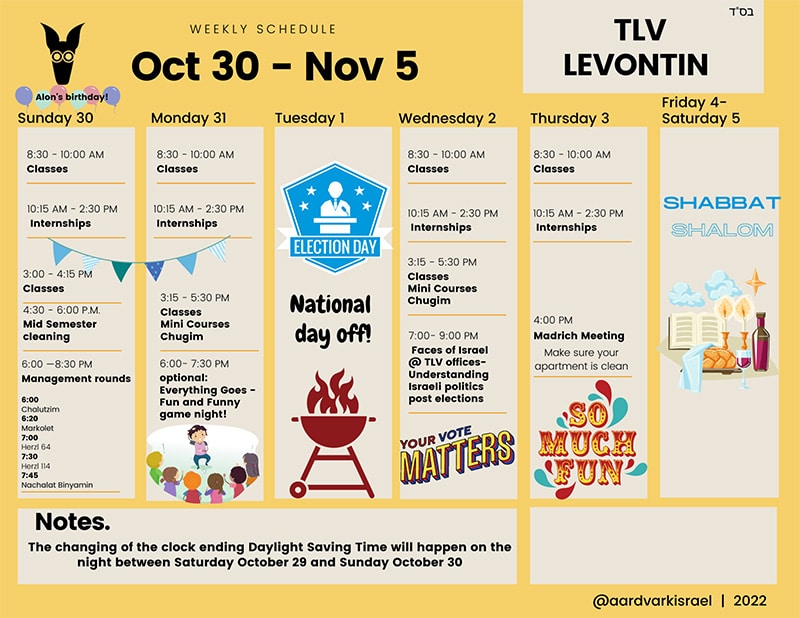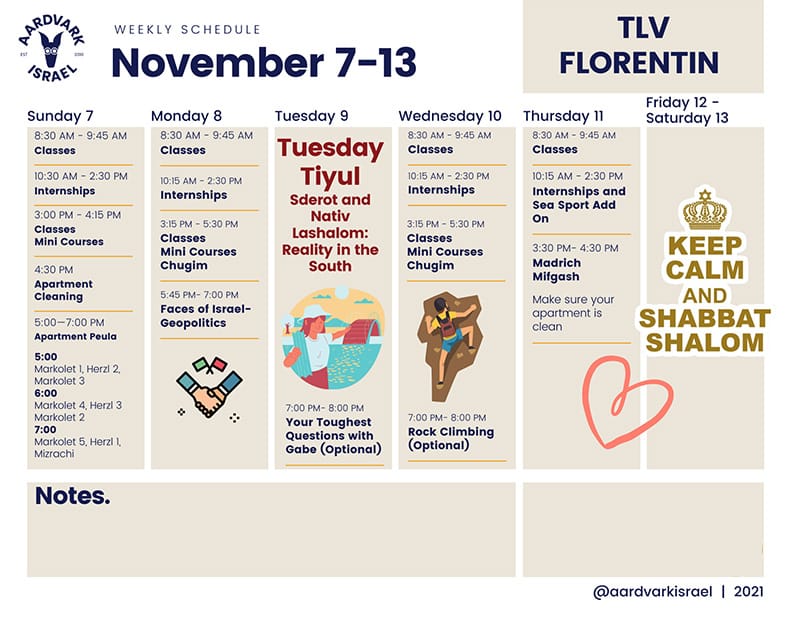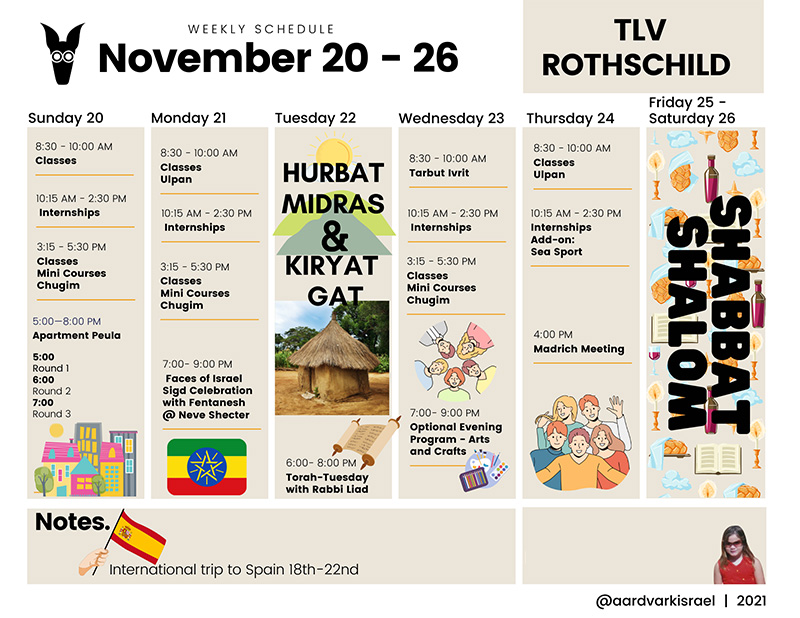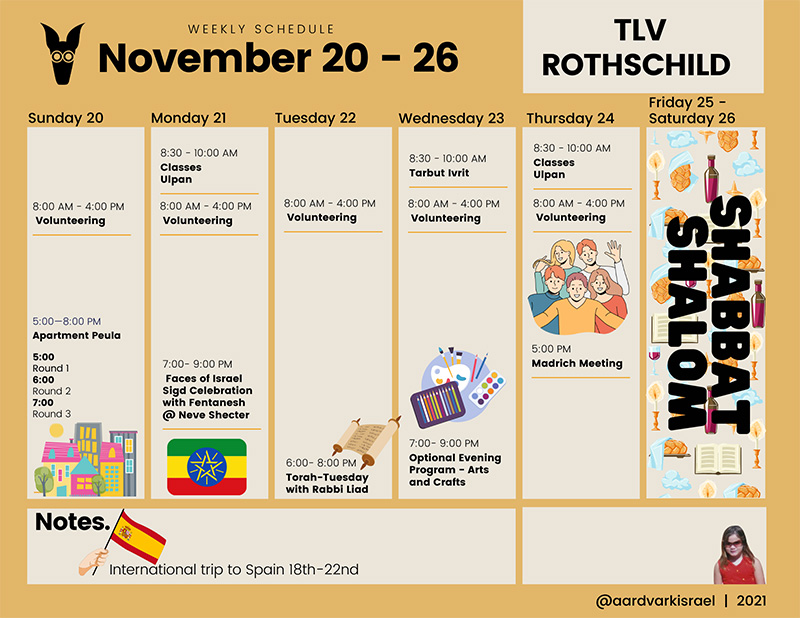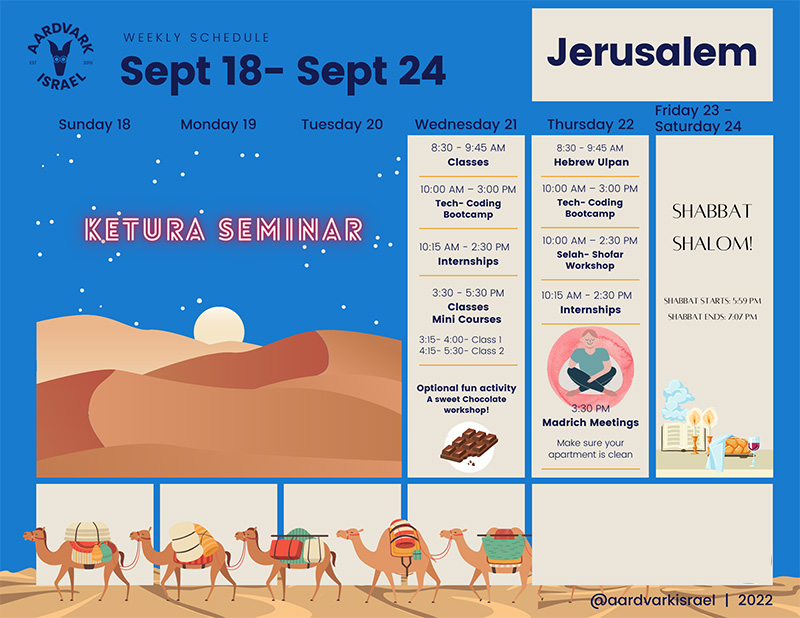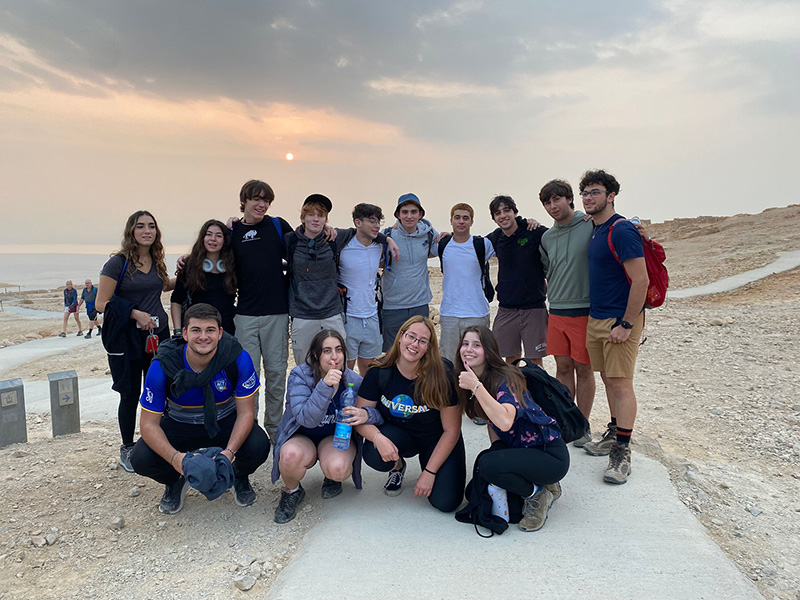
Shalom Parents and Students!
Another exciting week for our students was full of new experiences. Along with participating in Master Chef competitions, fun activities, and a Krav Maga class, they also visited some exciting places this week (some of these places even Israelis don’t know about!). Let us tell you all about it
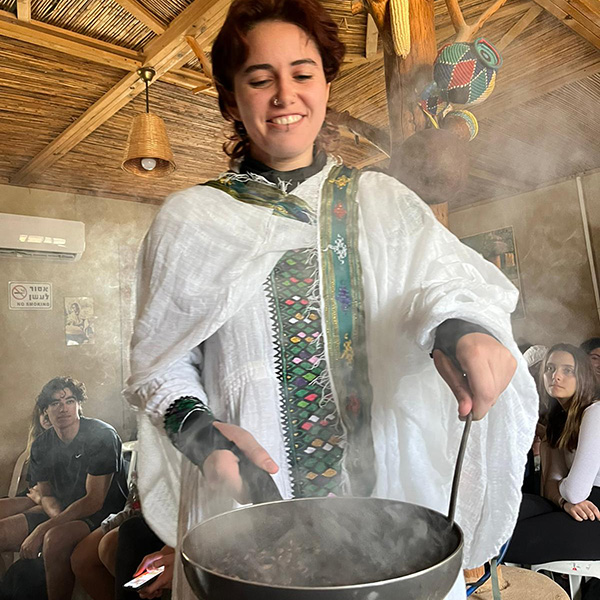
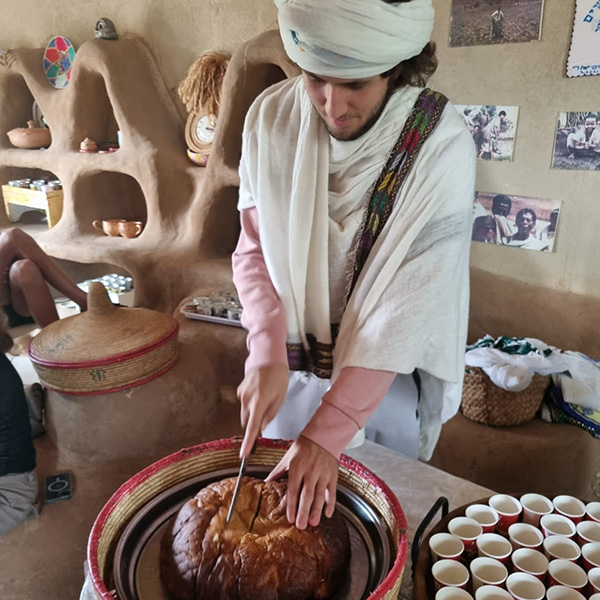
Our Florentin community traveled to Khirbet Midras, near Kiryat Gat. They also went to Beita Israel, a cultural center of the Ethiopian Jewish community in Israel, where the students built houses from mud, just like they do in Ethiopia! Later, they took part in Buna, a traditional coffee ritual, where they cooked coffee beans and said a blessing on Dabo, an Ethiopian bread.
Our Jerusalem students woke up really early this Tuesday and climbed Masada, in one of the most beautiful national parks in Israel. Masada, the Hebrew name for fortress, was built by King Herod between 37 and 31 BCE. The fortress is located in the Judean Desert and overlooks the Dead Sea, the lowest place on Earth. Our students toured the fortress and learned about the Jewish-Roman war and how the story teaches about taking ownership of your life and destiny. They finished the day at the Dead Sea, because honestly, how can you not? It’s so close!
Our Rothschild community traveled to the Galil. They enjoyed a beautiful hike, located in an area called Little Switzerland. This hike is full of evergreen trees and small ponds, and it was perfect for this time of year when it’s not too hot. They finished the hike in Nachal Oren, then continued to Daliyat Al Karmel, a Druze town, where they received traditional hospitality and heard from locals about the life of the Druze community in Israel.
Our Levontin community traveled to Ein Avdat, a canyon in the Negev Desert, south of Kibbutz Sde Boker. The students traversed the numerous springs, hiked through the canyon, and visited the grave of Ben Gurion, Israel’s first prime minister and one of its founding fathers.
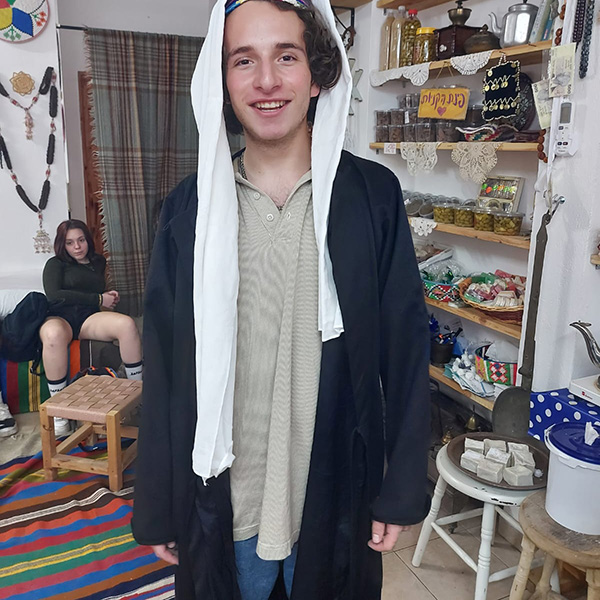
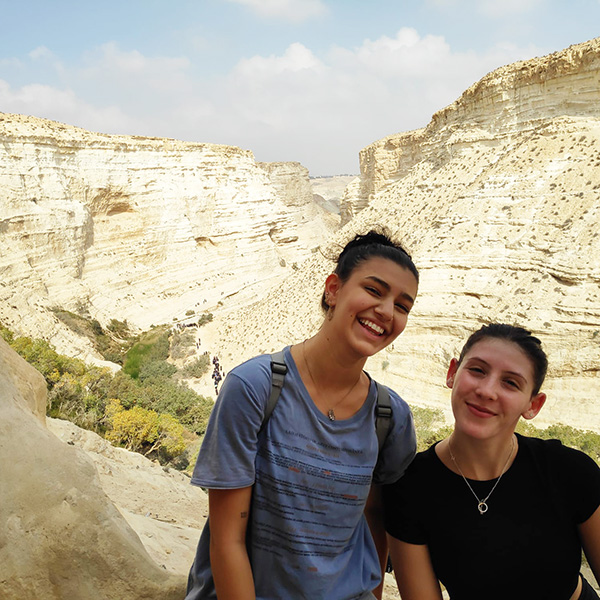
This week, we would like to put a spotlight on two challenging, and very different internships. Kira and Gil intern at Imperium Jets, a travel high-tech company, based in Herzliya. Their job is to help with marketing research and business development. There, they get hands-on experience and get to see what it’s like to work in a high-tech company, in the Start-Up nation.
On the flip side, we have Maya Singer, from the Bay Area, interning at one of Tel Aviv’s most chic restaurants, North Abraxas, owned by well-known chef Eyal Shani. Maya is an integral part of the cooking process, helping during lunch services, and food preparation. Maya enjoys experiencing what working in a real restaurant kitchen is like.
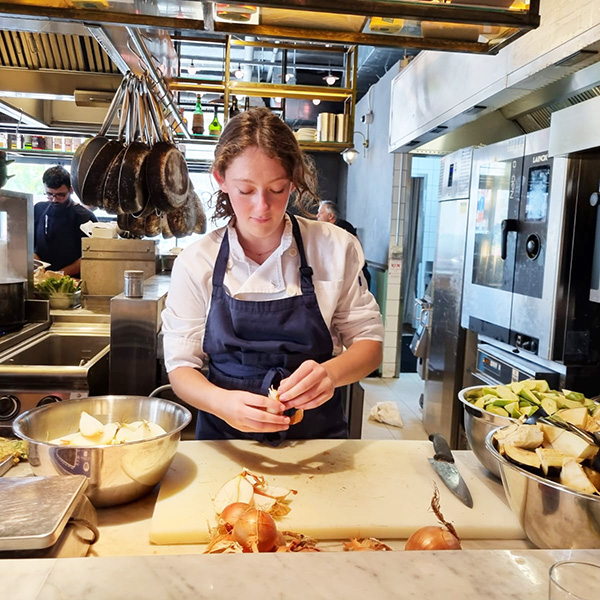

We leave you with some thoughts on this week’s Parashat Ha’shavua, by Rabbi Liad, our Jewish Life Coordinator:
“This week we read the portion entitled “The Life of Sarah.” It is a rather peculiar title. After all, the portion is all about Sarah’s death and her being laid to rest. Why then do we name the portion of Sarah’s passing, “The Life of Sarah?”
In the Jewish tradition, King Solomon is considered the wisest man to ever live. He said, “The day of death [is better] than the day of one’s birth” (Ecc. 7:1). What does this mean? I think we can all agree the birth of a new child is a wonderful occasion and the death of a person is a horrible one. How then can King Solomon say that the day of death is better than the day of birth?
King Solomon was stressing that when a new soul is born, we can’t actually say that this is a good thing. The baby hasn’t done anything yet. The baby might grow up to be righteous and change the world for the better. However, the child might also be completely wicked and bring destruction to the world. The birth is therefore neutral in this respect.
In contrast to this, on the day of death, things are very clear. We can look at the life that the person lived and see if it was good or bad. The Torah is telling us just this with the name of the portion. Only after she passed, and we saw the incredible life she lived, can we say, “Wow, Sarah really lived!” May we merit following our matriarch Sarah’s example and truly live through changing the world for the better!”
Have a great weekend,
Lee



